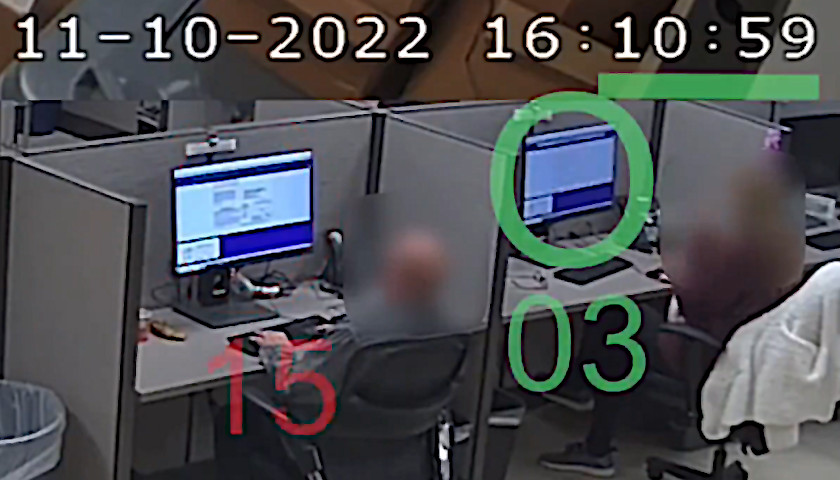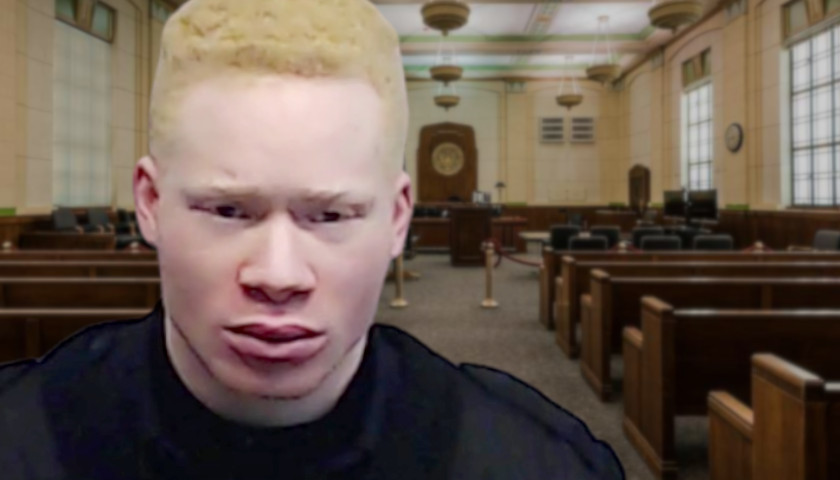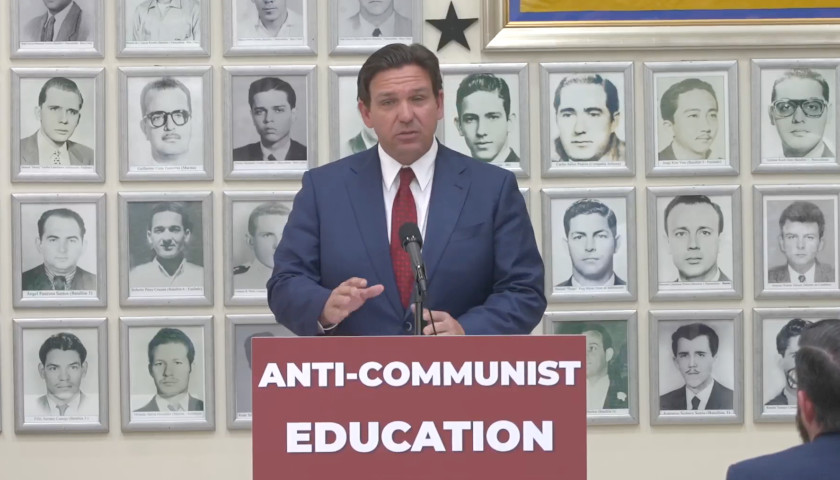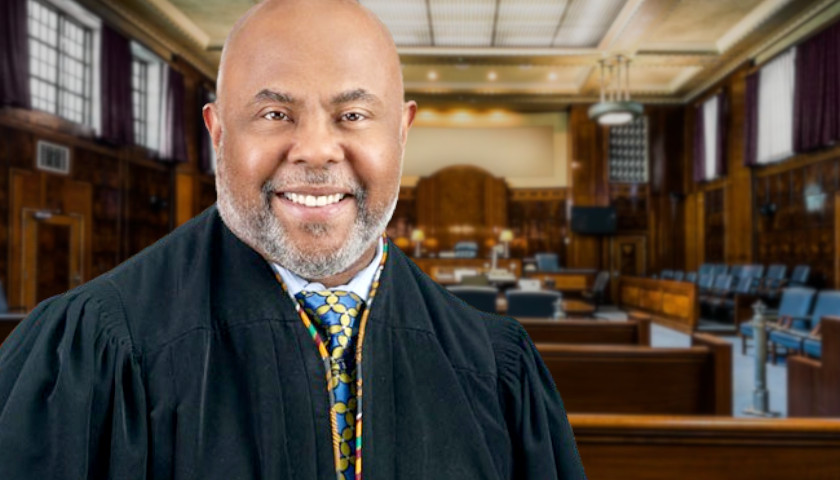After being ordered by the Arizona Supreme Court to reconsider the issue of signature verification in Kari Lake’s election contest, Maricopa County Superior Court Judge Peter Thompson decided after a hearing that he would allow a full trial. He declined to allow reconsideration of the faulty ballot-on-demand printer configurations, however, which resulted in mostly Republicans having problems casting ballots on Election Day. The trial began on Wednesday, with Lake’s attorneys emphasizing how the signature verification of voters’ signatures on mail-in ballot envelopes was conducted so quickly it was impossible to adequately verify them.
Lake’s attorney Kurt Olsen accused the county of falsely verifying signatures. “Maricopa’s log file data shows that 11 of these signature verification workers approved 170,000 signatures at a rate of between 0 and 2.99 seconds with a 99.97 percent approval rating,” he said. “That’s not signature review, your Honor.” Olsen said due to this, at least 334,000 mail-in ballots were not verified.
Lake’s attorneys displayed a video showing two Level 1 signature verification employees going through signatures on computer screens. While one takes his time, another one spends less than a second on each, clicking through the screens quickly.
To believe that Maricopa County successfully verified more than 400,000 ballots would mean that they would have had to verify signatures in 3 seconds or less.
While working OT.
Watch this video.
Are they treating the integrity of your vote with the respect it deserves? pic.twitter.com/66jO2SGuQq
— Kari Lake War Room (@KariLakeWarRoom) May 17, 2023
A whistleblower testified that Level 1 signature verification employees were sent home early at 7 p.m. and instead the verification was conducted at the recorder’s office with no observers present.
One of the Level 1 signature verification employees testified. Andy Meyers, who worked in signature verification during both the 2022 primary and general elections, told Lake’s attorney Brian Blehm that despite the fact there were far more ballots cast during the general election than during the primary election, the number of Level 2 signature verification employees did not increase. Level 2 is responsible for signatures that have been flagged by Level 1 as questionable. If determined they match, Level 2 approves the ballots. If there are still questions, Level 2 returns the ballot back to the Level 1 reviewers for “curing,” which requires the reviewer to contact the voter to confirm their identity.
Meyers said one of the Level 2 workers told him, “We’re going to get crushed” with all the work, since he was “working through a lot of garbage.” Meyers said he thought at the time, “The sheer volume of that I thought necessitated working at night, we gotta get this thing done. … I told my wife I was going to be working weekends because of the volume, but nothing happened.” When the extra work failed to materialize, “It stunned me.”
Based on how many questionable signatures Meyers encountered, he expected to see 1,500 to 2,000 signatures kicked back by Level 2 reviewers to him each day to cure. Instead, he would only receive about 1,000. He discovered that Level 2 reviewers were kicking signatures back to Level 1 without bothering to review them. “So my understanding was when their queue got full, and they had other things to do, they would release and they rejected signatures back to one to see if they got the same result,” Meyers testified.
At the end of the process, he said there was a final batch of 298,000 signatures, which meant about 5,000 should have been returned to Level 1 for curing. Instead, he doesn’t believe any were.
Maricopa County Deputy Attorney Jack O’Connor cross-examined Meyers, but asked very few questions. Blehm came back for redirect, asking Meyers about the timing and number of the ballot affidavits reviewed. Meyers said that he expected 298,000 signatures to be reviewed in four to five days, but instead they were reviewed in just 36 hours. “That doesn’t add up,” he said.
Next, Maricopa County Elections Director Rey Valenzuela took the witness stand. He told Blehm that the county did not forward a single questionable signature to the Attorney General’s Office (AGO) during the 2020 election, and appeared to confirm the same for the 2022 election. There is no statutory requirement for the county to report evidence of possible crimes to law enforcement. County officials have repeatedly claimed that election fraud is rare.
EZAZ co-founder Merissa Hamilton tweeted in response to Valenzuela’s testimony, “Kinda like how Rey said that it was folklore they were sending ballots to dead voters until we did the research and secured an indictment of voter fraud.”
Jen Wright, previous Election Integrity Unit civil attorney for the AGO who is now representing Abe Hamadeh in his election challenge for the AGO’s race, also tweeted about the issue. “It’s hard to claim it is rare if there are prosecutions,” she said. “Someone should also inquire as to how many actual referrals for double voters are made to Arizona law enforcement agencies from the ERIC report — and how long it takes to make the referrals.”
The county referred only 40 cases to the AGO of alleged double voting in the 2020 election, which were discovered from the ERIC report.
Wright previously brought up her concern over the short amount of time allotted for signature verification in a letter to the county in May 2022. “The time your staff spends analyzing signatures does not appear sufficient given the hundreds of thousands of signatures that need to be processed in a short period,” she said. “It is not clear to either lawmakers or voters how your staff and temporary employees (with limited training and who are expected to process 500 signatures each hour), can perform this task without error or fatigue, and why the percentage of rejected signatures varies from election to election. Whether it’s four, six, or ten seconds per signature, please explain how that is enough time to perform a meaningful analysis and how the current system provides sufficient safeguards to assure that only lawful ballots are counted.”
She also asked the county in writing four times for documents and hardware related to the 2020 election, which the county mostly ignored. The third letter included a request for voter registration records, citing two studies that came out from Dr. Shiva Ayyadurai discovering numerous unmatched signatures.
The county stopped responding to Wright’s letters after April 2022. They told her they would get back to her after their attorney Ed Novak returned from vacation, but never did. Wright told The Arizona Sun Times she rarely received responses. One of the rare few was a letter from Novak dated March 20, 2022, which stated in part, “The Recorder and the Elections Department have no additional policies or procedures related to signature verification that have already not been provided.”
Valenzuela said when the AGO asked the county for information related to 40 questionable signatures, he provided the information. Blehm asked him how many Level 1 and Level 2 signature reviewers there were during the 2022 general election. Valenzuela said 155 Level 1, and 43 Level 2 reviewers.
Next, Blehm asked Valenzuela if the county allows observers in locations other than at the Maricopa County Tabulation Election Center (MCTEC), such as at the main recorder’s office or the Mesa satellite office. Defense attorneys objected to the question. Thompson allowed the question, and Valenzuela said that since some of the signature review is done by employees in private offices, including by himself, observers are not allowed to watch.
Wow!
The director of elections in Maricopa County just admitted that he and his coworkers perform signature verification in their own offices without observers.
— Kari Lake War Room (@KariLakeWarRoom) May 17, 2023
During the trial, Maricopa County Recorder Stephen Richer deleted a tweet where he admitted that signatures are not just reviewed in the general areas with observers and cameras. His tweet, which was screenshotted by user CannConn, said, “Unreal that this moron doesn’t understand that we can do signature verification from any computer in our office.”
Blehm asked Valenzuela if he keeps statistics or records on the pace of signature verification. Defense attorneys objected, but Thompson overruled them. Valenzuela said the county did not. Finally, Blehm asked him if the county had ever fired an employee for doing a poor job verifying signatures. Valenzuela said no.
Democrat Katie Hobbs defeated Kari Lake in the gubernatorial election by about 17,000 votes. An exit poll conducted by Rasmussen Reports found that voters chose Lake over Hobbs by 8 points. The trial is being livestreamed on the Maricopa County Superior Court’s website.
– – –
Rachel Alexander is a reporter at The Arizona Sun Times and The Star News Network. Follow Rachel on Twitter. Email tips to [email protected].
Image “Signature Verification Surveillance Video” by Kari Lake War Room.








